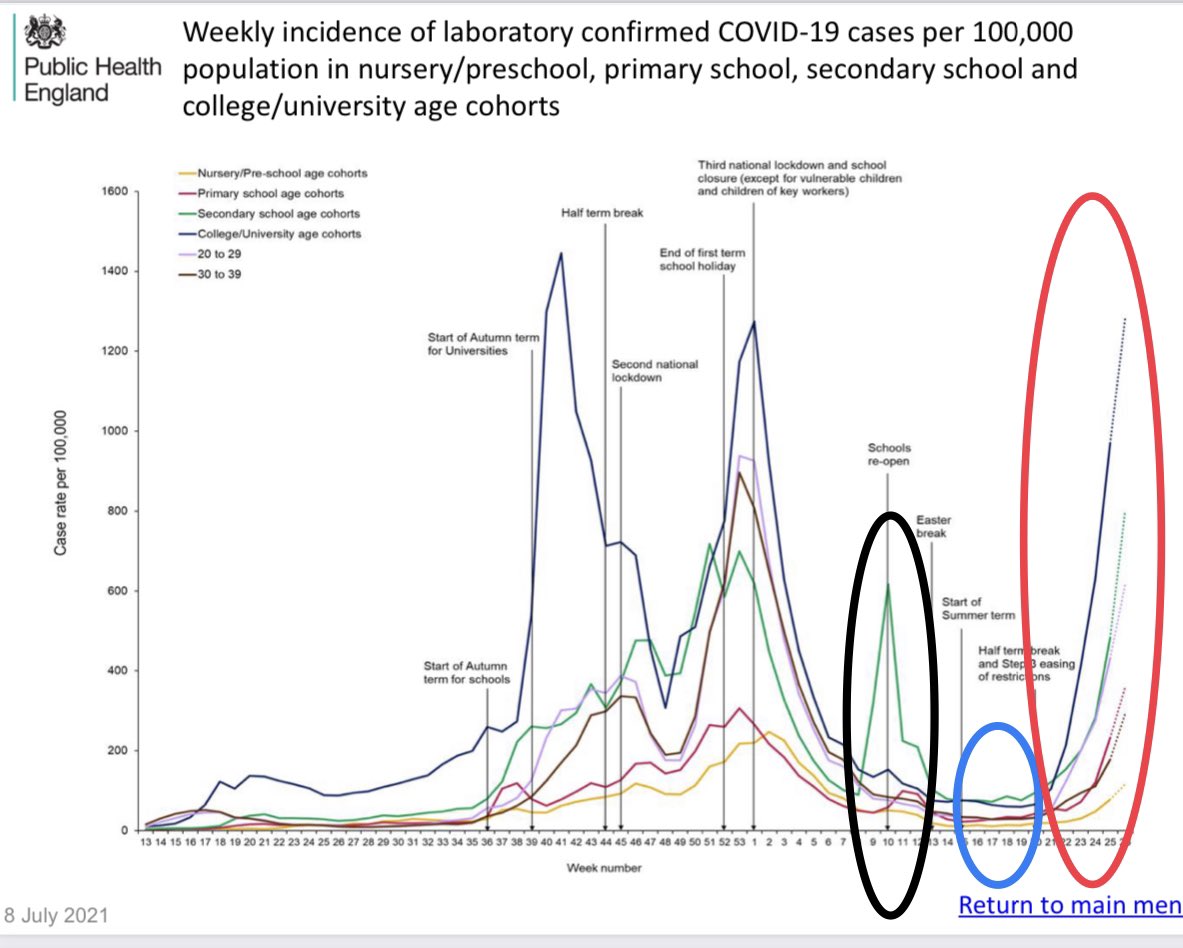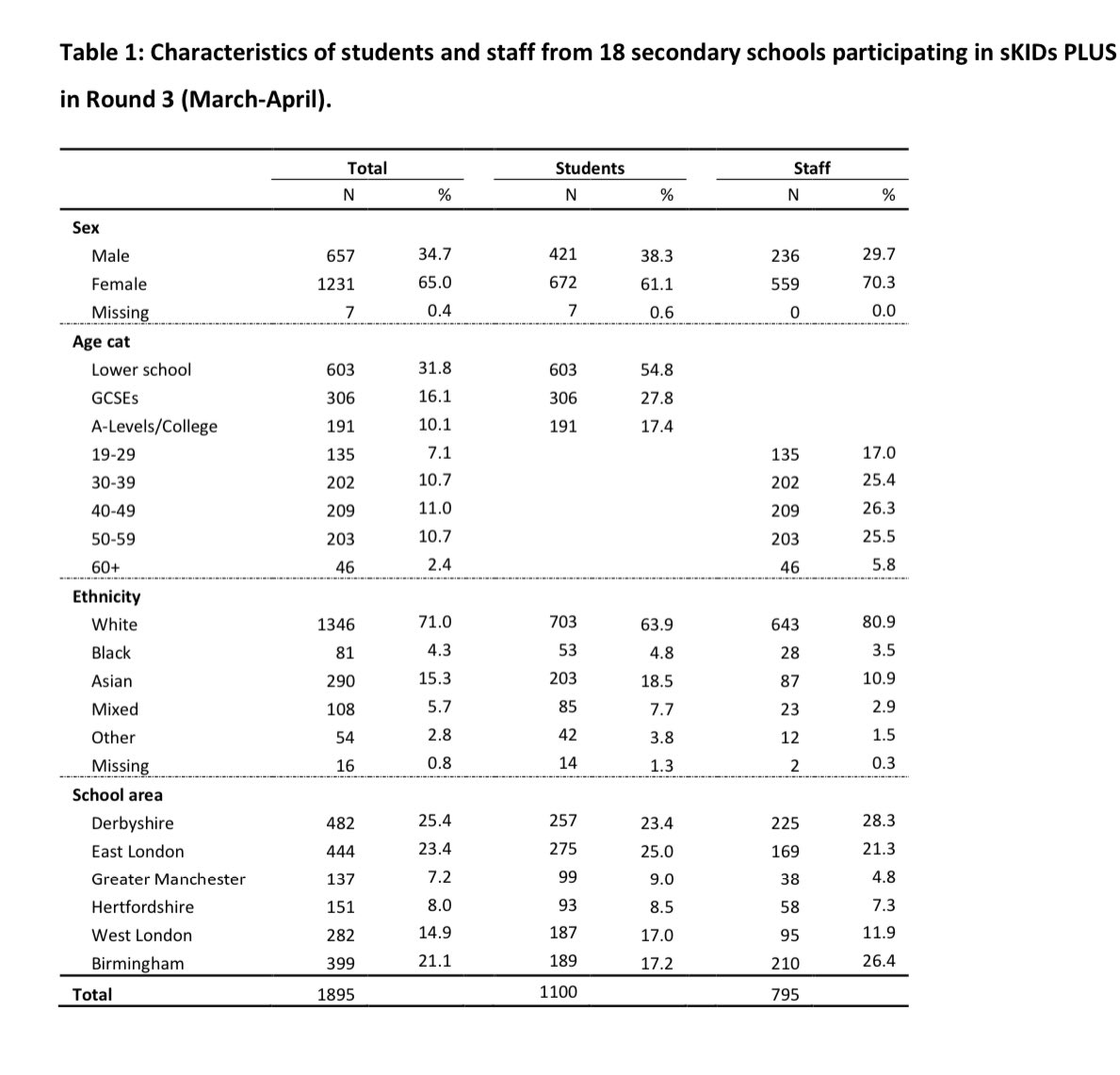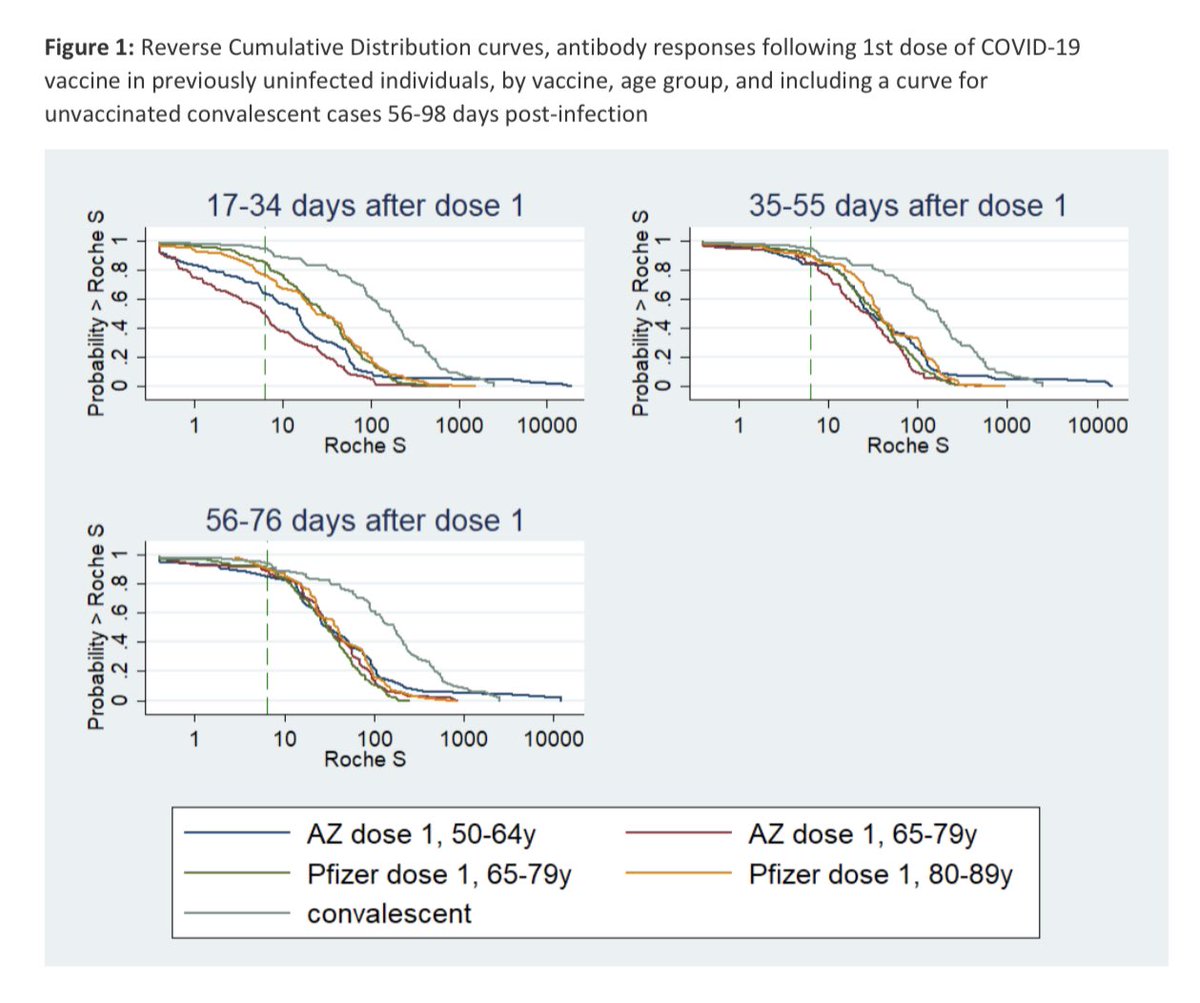
1/ How long do 2 doses of #COVID19 vaccines protect for? Who needs booster vaccinations?
Our team @phe_uk have just published a pre-print on vaccine effectiveness (VE) and duration of protection after 2 doses of Pfizer and AZ vaccines in adults … 🧵
👉 khub.net/documents/1359…
Our team @phe_uk have just published a pre-print on vaccine effectiveness (VE) and duration of protection after 2 doses of Pfizer and AZ vaccines in adults … 🧵
👉 khub.net/documents/1359…
2/ We now have data for ~6 months post-vaccination & compare VE by age, comorbidity & #sarscov2 strain (Alpha/Delta)
We used a test-negative case-control design to estimate VE after 2 doses against PCR-confirmed disease, hospitalisation within 14d of PCR test & death within 28d
We used a test-negative case-control design to estimate VE after 2 doses against PCR-confirmed disease, hospitalisation within 14d of PCR test & death within 28d
3/ In this analysis, 2 million adults (38.7%) had 2x AZ, 1.7 million (31.7%) had 2x Pfizer, 124k (2.4%) had 2x Moderna & 10k (0.2%) had mixed/other
There were 1.5 million cases (544k Alpha, 895k Delta, 37k other/unknown) & 3.8 million negative tests from 3.3 million adults
There were 1.5 million cases (544k Alpha, 895k Delta, 37k other/unknown) & 3.8 million negative tests from 3.3 million adults
4/ VE against symptomatic disease peaked in the early weeks after 2nd dose, then fell to 47.3% (95% CI 45.0 to 49.6) by 20+ weeks against the Delta variant for AZ vaccine & 69.7% (95% CI 68.7 to 70.5) for Pfizer vaccine 

5/ HOWEVER, there was little waning in protection against hospitalization, with a VE against Delta variant of 77.0% (70.3 to 82.3) beyond 20 weeks post-vaccination for the AZ vaccine & 92.7% (90.3 to 94.6) for Pfizer vaccine.
High protection for both vaccines against death, too
High protection for both vaccines against death, too

6/ When compared by age, VE against hospitalisation remained high for 20+ weeks. In general, there was more waning in protection against hospitalisation among 65+ compared to 45-64 year-olds.
Note: wide overlapping CI for 40-64y with AZ vaccine at 20+ weeks due to limited data
Note: wide overlapping CI for 40-64y with AZ vaccine at 20+ weeks due to limited data

7/ VE by clinical risk group: very high VE retained for 20+ weeks for both vaccines in adults who were not in a clinical risk group
VE in risk groups started lower & had more waning vs adults not in a risk group, but note wide confidence intervals because of smaller cohorts
VE in risk groups started lower & had more waning vs adults not in a risk group, but note wide confidence intervals because of smaller cohorts

8/ Among 40-64-year olds in a clinical risk group, there was some evidence of waning of protection against hospitalization with time since vaccination after 2 doses of AZ vaccine
Virtually no waning of protection against hospitalization for 20+ weeks in healthy 40-63 year-olds
Virtually no waning of protection against hospitalization for 20+ weeks in healthy 40-63 year-olds

9/ Interestingly, 80+ year-olds receiving Pfizer at shorter interval (<4 weeks) between doses had lower VE compared to an extended interval (≥ 8 weeks) between doses in the latest follow-up periods (>20 weeks after dose 2), although confidence intervals were wide & overlapping 

10/ In conclusion, high overall VE is sustained against hospitalisation & death for >5 months post-vaccination
In general, more waning seen with AZ vs. Pfizer, older vs. younger adults and being in a clinical risk group - important info when considering booster prioritisation
In general, more waning seen with AZ vs. Pfizer, older vs. younger adults and being in a clinical risk group - important info when considering booster prioritisation
11/ Food 4 thought:
👉Could we have waited a little longer before giving boosters? Balance between waning immunity, speed of vaccination, hospital pressures & risk of new variants
👉Although easier to use same vaccines, lower dose +/- variant vaccines might make better boosters
👉Could we have waited a little longer before giving boosters? Balance between waning immunity, speed of vaccination, hospital pressures & risk of new variants
👉Although easier to use same vaccines, lower dose +/- variant vaccines might make better boosters
• • •
Missing some Tweet in this thread? You can try to
force a refresh










